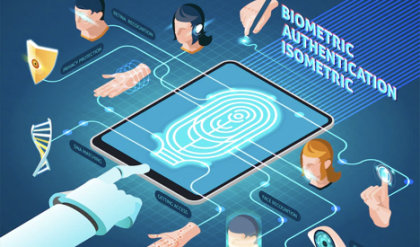
In the dynamic sector of financial services, continuous learning is essential. It’s time to explore the integration of Learning Management Systems (LMS) tailored for financial services. Equip your team with the robust skills necessary to navigate the complex financial landscape. Let’s delve into how an LMS for financial services can be the catalyst for growth and proficiency in your organization.
Efficiency Meets Compliance
Compliance is paramount in finance, and an LMS, such as Samelane, streamlines training to ensure it. It centralizes compliance materials, providing consistent and up-to-date training. This fosters a culture of responsibility. Additionally, it simplifies audits by offering a transparent record of training activities, demonstrating adherence to operational standards.
Customized Learning Pathways
In the financial sector, one-size-fits-all training doesn’t work. LMS allows organizations to create tailored training modules for various roles. This ensures employees receive job-specific training that enhances their skills and knowledge, benefiting both individual performance and overall workforce competence.
Real-Time Analytics and Insights
LMS provides real-time analytics, simplifying progress tracking and enabling prompt intervention to address knowledge or skill gaps. This proactive approach to learning ensures that financial organizations stay ahead of industry trends and regulatory changes, fostering a knowledgeable and adaptable workforce.
Cost-Effective Training Solution
Employing a Learning Management System translates into substantial cost savings for organizations. It minimizes training expenses by eliminating the need for physical materials and reducing logistical hassles associated with traditional training methods. Additionally, a Learning Management System like Samelane, serves as an eco-friendly alternative by significantly reducing paper consumption and the carbon footprint associated with in-person training. This cost-effective approach not only benefits an organization’s bottom line but also aligns with sustainability initiatives, making it a responsible choice for modern businesses.
Enhanced Engagement and Productivity
The interactive nature of LMS modules is a game-changer in enhancing engagement and productivity among learners. LMS for financial services encourages active participation, turning passive learning into a dynamic experience. By fostering a motivated workforce, LMS contributes to higher retention rates and more effective skill development. Furthermore, it promotes productivity by granting employees convenient access to learning resources. This accessibility allows employees to acquire knowledge and skills on-the-go, reducing downtime and enhancing overall productivity within the organization.
Robust Security Measures
Security of sensitive information is a top priority, particularly in the financial sector. LMS addresses this concern by integrating robust security features. It ensures that confidential data remains protected diligently. These security measures include controlled access, data encryption, and regular security audits. By prioritizing data security, LMS platforms instill confidence in employees, clients, and stakeholders, reinforcing the organization’s commitment to safeguarding valuable information.
Ease of Integration
Transitioning to an LMS is seamless due to its compatibility with various platforms. This versatility enables organizations to integrate the system smoothly into their existing infrastructural setups. Whether it’s linking with HR management systems or other learning tools, LMS adapts effortlessly, minimizing disruptions and ensuring a harmonious alignment with the organization’s technology ecosystem.
User-Friendly Interface
LMS platforms are designed with user-friendliness in mind, ensuring a pleasant learning experience. The intuitive interface simplifies navigation, reducing the learning curve for users. This approach promotes user engagement, making the learning process more enjoyable and accessible. Employees can focus on the content rather than struggling with a complex system, enhancing their overall learning experience.
24/7 Accessibility
Flexibility in learning is a key benefit of LMS. It offers round-the-clock accessibility, allowing individuals to learn at their convenience. This accommodates different learning patterns, whether employees prefer to study during office hours or in their free time. The availability of learning resources at any time fosters a culture of continuous improvement, enabling individuals to enhance their skills and knowledge on their terms.
Scalable Solutions
LMS is not confined to specific organization sizes. Its scalable nature means it can grow with an organization without hindrances. This adaptability caters to the needs of organizations of all sizes, making it a reliable solution for both established companies and growing enterprises. It ensures that organizations can continue to benefit from the LMS as they expand and evolve.
Expert Support and Maintenance
LMS vendors provide expert support and continuous maintenance to ensure the smooth functioning of the system. This support guarantees an uninterrupted learning experience for employees. Whether it’s technical issues, updates, or troubleshooting, organizations can rely on the expertise of LMS providers to address any concerns promptly, minimizing disruptions and maximizing the benefits of the system.
Leveraging LMS for Financial Services holistic learning
In conclusion, an LMS for financial services offers a holistic approach to learning and development. It integrates seamlessly, providing a user-friendly and secure platform for continuous learning. With customized learning pathways and real-time analytics, it fosters a culture of excellence and compliance in the financial sector.
Take the step to enhance your organization’s learning curve. Opt for an LMS solution that aligns with your objectives, fostering growth and proficiency in the financial sector. With robust features and benefits, it stands as a vital tool in navigating the complex financial landscape, promoting a culture of continuous improvement and excellence.






